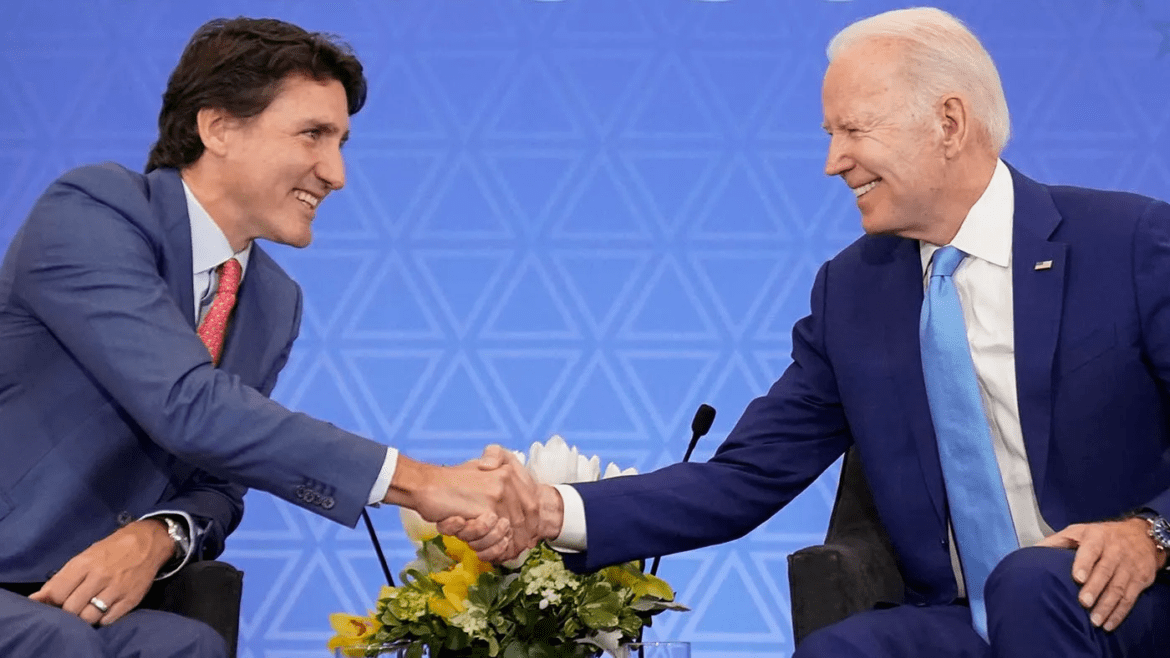AI Generated Summary
- This maneuvering appears to be part of a broader strategy to destabilize the Indian administration by supporting pro-Khalistani elements, a charge that strikes at the heart of India’s national integrity.
- As Indian Prime Minister was on his visit to the US, unsettling developments behind the scenes threatened to undermine decades of strategic partnership between India and the United States.
- As India navigates its role on the global stage, it is crucial that its allies stand firmly with it, rather than inadvertently or otherwise supporting forces that seek to destabilize its democratic framework.
As Indian Prime Minister was on his visit to the US, unsettling developments behind the scenes threatened to undermine decades of strategic partnership between India and the United States. Reports revealed that senior White House and U.S. intelligence officials have been meeting with Khalistan extremists, raising serious concerns about Washington’s intentions and its respect for India’s sovereignty.
Brahma Chellaney, a respected Indian foreign policy analyst, asserts that the Biden administration is leveraging the sensitive issue of Khalistan extremism to pressure India. He points out that the intelligence shared by the U.S. has been unreliable at best, contributing to diplomatic tensions not only with India but also with Canada—a key ally. This maneuvering appears to be part of a broader strategy to destabilize the Indian administration by supporting pro-Khalistani elements, a charge that strikes at the heart of India’s national integrity.
Reuters: "Ahead of Biden-Modi meeting, senior White House and U.S. intelligence officials meet Sikh activists." Biden administration has been seeking to leverage the Sikh militancy card against India. The sketchy intelligence it shared led to Canada's diplomatic spat with India.
— Brahma Chellaney (@Chellaney) September 21, 2024
Former Indian Foreign Secretary Kanwal Sibal has further illuminated the gravity of the situation. He questions the U.S.’s objectives in fostering such provocations, highlighting that high-level clearance was likely required for these meetings with pro-Khalistani groups. Sibal contends that the U.S. is actively encouraging those who challenge India’s sovereignty and territorial integrity, a stance that is both provocative and detrimental to bilateral relations.
It is difficult to understand what US hopes to gain from such a provocation. This meeting in the White House with pro- Khalistani elements and assuring them of protection couldn’t have occurred without high level clearance. US is encouraging those who are working against… https://t.co/pDHscnXFIg
— Kanwal Sibal (@KanwalSibal) September 21, 2024
The civil lawsuit filed by Pannun, which names prominent Indian intelligence official Ajit Doval among others, underscores the coordinated efforts to undermine the Indian administration. Additionally, U.S. diplomats have been actively engaging with opposition leaders in India, publicizing these interactions in a manner that aligns with a pattern of interference. This raises critical questions about how these actions fit within the framework of the India-U.S. strategic partnership and the broader Quad alliance, which includes Japan and Australia.
Moreover, there is a glaring inconsideration from the U.S. and Canada regarding the disrespect shown to the Indian flag by Khalistani extremists. Unlike other protest movements or radical groups, these extremists have blatantly violated international protocols by desecrating national symbols—a behavior that deserves condemnation. The silence from Western governments on this issue is not only perplexing but also unacceptable, as it overlooks a blatant affront to India’s national pride and sovereignty.
The ramifications of these developments are profound. If the U.S. continues to engage with and support elements that undermine India’s stability, it risks fracturing one of its most important alliances in Asia. The strategic partnership between India and the U.S., essential for regional security and economic growth, is at stake. Furthermore, the Quad alliance, which serves as a cornerstone for maintaining a free and open Indo-Pacific, could be jeopardized if mutual trust is eroded by such provocations.
In light of these concerns, a clear and unequivocal clarification from the White House is imperative. The U.S. must address these allegations transparently to preserve the integrity of its relationship with India. Failure to do so may compel India to take serious countermeasures to protect its national interests and strategic autonomy.
The Biden administration must reassess its approach and reaffirm its commitment to respecting India’s sovereignty and territorial integrity. Strategic partnerships are built on mutual respect and trust, and any actions that undermine these principles can have long-lasting negative consequences. As India navigates its role on the global stage, it is crucial that its allies stand firmly with it, rather than inadvertently or otherwise supporting forces that seek to destabilize its democratic framework.




